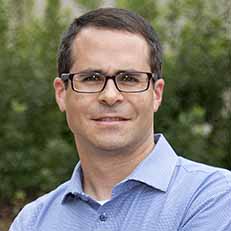Transitioning to renewable energy is critical to combatting climate change, but often overlooked are the human costs involved.
During an appearance on O’Neill Speaks, the official podcast of the Paul H. O’Neill School of Public and Environmental Affairs, Lynton K. Caldwell Professor David Konisky broke down the complex challenges facing a green-energy future.
“A future where we're relying on more energy-efficient technologies costs more,” said Konisky, co-author of the new book “Power Lines: The Human Costs of American Energy in Transition,” written with colleague Sanya Carley from the University of Pennsylvania. “They require a bunch of new infrastructure, and those costs are not going to be evenly distributed across society.”
The book explores how race, class, and wealth will impact where new energy infrastructure is going to be placed, as well as the impact it will have on careers and communities that have long depended on legacy systems. “For the book, we talked to folks in coal communities,” Konisky said. “We also talked with people who are in the auto assembly community, particularly in industrial heartland, such as here in Indiana, people who have had generations of their family working in auto plants, who are thinking about similar issues as we transition from gas-powered cars to electric vehicles.
“One of the things we heard repeatedly is not just a frustration and sense of loss but a real desire to be part of what comes next. It wasn't hopelessness. It wasn't a belief that there was no path forward. There's just a concern that they were going to be left behind, that they were going to be left out and not be included in the sort of the new technologies that are necessary with the energy transition. What was really interesting about those conversations is that people were recognizing that the transition was occurring. They weren't trying to fight it, but they really felt a strong desire to be part of what comes next.”
“Power Lines: The Human Costs of American Energy in Transition” is published by the University of Chicago Press and is available wherever books are sold.


